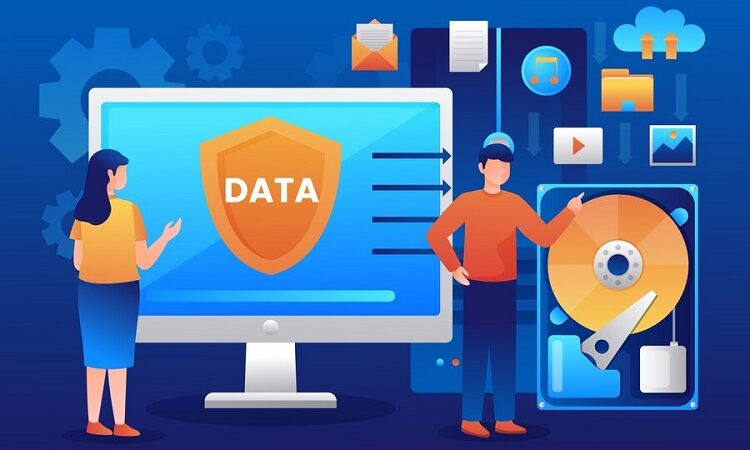What does CRM stand for in Business?

CRM is essential in business as it consists of software, strategies, and processes that manage your brand’s interactions with potential clients and customers. This will enable you to not only sell more but also build customer loyalty for a lifetime.
But what does CRM stand for in business? Why is CRM important? And, what are some examples of CRM?
What is CRM?
CRM means Customer Relationship Management. CRM software assists businesses with customer-centric interactions with contacts to develop long-lasting relationships with them.
There can be various types of contacts –
- Prospects
- Leads
- Members
- Clients or customers
- Collaborators
- Users
- Suppliers
CRM also relates to CRM software which is specifically designed to assist companies in managing their customer relationships. Salesforce automation CRM is a subcategory of CRM that automates a part of your marketing and sales processes to boost operational efficiency and sales.
The three components of CRM include –
- A CRM process: This provides you with a methodology that needs to be followed effectively for each action.
- A CRM project: This strategy assists with customer interaction. The CRM strategy refers to the methods and tools to manage your customer interactions.
- A CRM system: This refers to the CRM software and enables the sales team to analyze and record data from each customer interaction.
What does CRM software do?
With a cloud-based CRM software, businesses can –
- Centralize, store, and share useful information in real-time
- Get 24/7 access to an online document base
- Manage contacts as well as integrate them into a robust database
- Tracks past interactions with a contact
- Prospect the ideal contacts with powerful follow-ups
- Customize the commercial offer to sell more and develop customer loyalty
- Improve the quality of customer service and technical support
- Manage sales activity
- Analyze sales performance with a dashboard
- Organize and automate marketing strategy
Benefits of Using CRM Software
- Understand your customers better
Good customer knowledge will enable you to improve customer experience in-store, online, by email, videoconferencing, postal mail, or by phone.
CRM software allows you to collect large volumes of data from every contact interaction. Sales teams can access the history, past interaction, and sales activity of these customers within a few clicks as CRM tools help to process and centralize this information.
- Boost prospecting and selling
When you know your customers better, you have a higher chance of closing a deal by meeting their expectations and providing them with customized offers.
- Improve customer satisfaction and loyalty
It is essential to listen to your customers if you want to be able to react fast to their demands. Moreover, acquiring new customers needs more effort than selling to the existing customers by improving customer loyalty.
- Stay competitive
In the modern digitalized world, people interact live via the Internet. Therefore, it is essential that your sales team and customer support staff have access to modern tools. With CRM tools, you can gain a competitive advantage in your niche market.
- Be more responsive
Different departments within an organization must have the same set of documents and information to work efficiently. Cloud-based CRM software comes with collaborative tools to enable your sales teams to close more sales and improve sales performance.
Key Features of CRM Software
Contact Management
The CRM database holds all contacts in a centralized format that can be accessed by your team 24/7. Each department of your organization can access this data in the form of contact sheets either to search for information or update them in real-time.
Document Management
A cloud-based CRM software solution will centralize all the documents and make them accessible to the employees 24/7. Moreover, most CRM systems are seamlessly compatible with office automation suites like Microsoft Office 365. This means that your CRM system provides you with an interface that can communicate easily with other software to facilitate the execution of your tasks.
Sales Process Management
Salespeople are required to follow up on their prospects, manage each contact, make appointments, close deals, and others. CRM software can be configured by your sales reps according to the sales process. Moreover, CRM tools are capable of effectively automating your sales processes and ensuring that you never miss out on an opportunity.
Performance analysis
By entering your sales objectives and KPIs in the CRM software system, you can easily set up a dashboard. The dashboard provides you with key figures in real-time to enable you to control your sales activities. Your sales team can also make forecasts by accessing past sales activity and identifying periods that are ideal for selling or prospects. Moreover, some data will enable you to identify the sales cycle or the best customers.
Now that you know what CRM software is and how beneficial it is for your business, you may be thinking of implementing one for your organization. ConvergeHub has the best CRM solutions that will get your business up and running. Contact us today to know more.
Author Bio: Hi, I’m Pooja and I’m a passionate Blogger, Freelancer, Writer, and Digital Marketer. and I love tech stuff and games. Gembells, Hotmaillog, Indianlatestnews.






